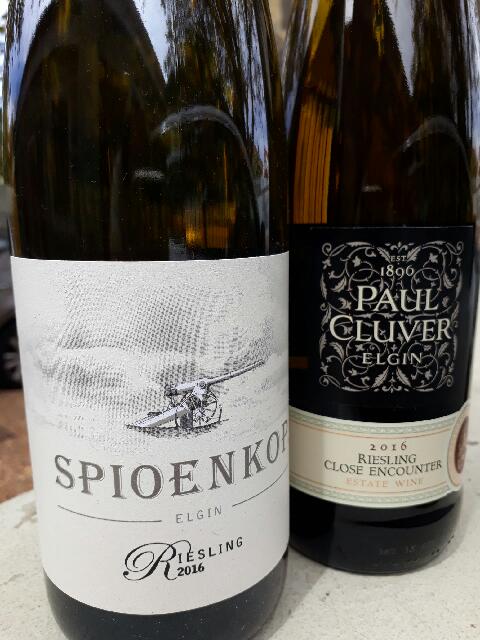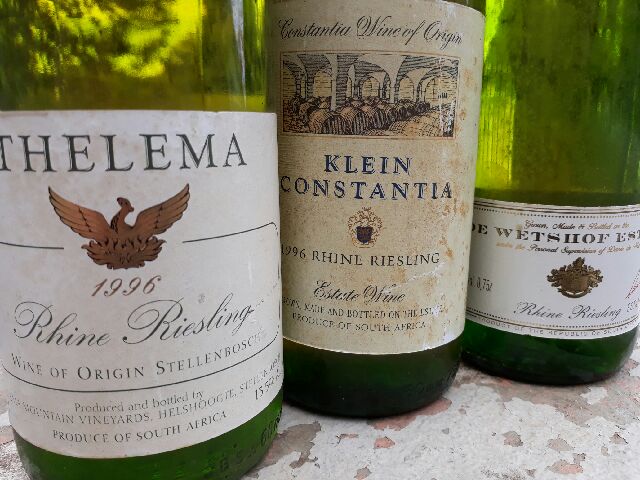
The Riesling litmus test?
Koen Roose is the first to admit that he quite likes being known as the “crazy Belgian” in the Elgin wine valley. He’s crazy alright... crazy like a fox!
The sommelier-turned-importer/exporter-turned-viticulturist-turned-winemaker is deceptively savvy when it comes to wine. He’s worked in Burgundy for seven northern hemisphere harvests but chooses to spend his time there in the vineyards, “talking to the vines” as he puts it, rather than being in the cellar. He’s learnt more in cold, muddy fields that he ever could surrounded by barrels and tanks he believes.
More than a decade ago, he was the first in the apple farming highlands 70 kilometres from Cape Town to plant Chenin Blanc and he is of the opinion that the South African wine fraternity has yet to see what Elgin is capable of with the grape.
His track record in producing one of the country’s best Riesling wines means we should perhaps heed his prediction. Local wine critic Tim James is not given to hyperbole but in the 2018 edition of the Platter Guide to South African wines he wrote the following glowing recommendation of the Spioenkop Riesling: “Full fruit on eloquently expressive 2016 (****/*) already promising complexity, a rare Cape example with the tingling, ethereal fascination of the variety. Brilliant acidity & dryness aid the feeling of concentrated, bursting restraint. Energising, refreshing. Like 2015, ready for drinking but will develop.”

What is it about Riesling? Wine critics love it but it remains a hard sell to consumers locally and internationally. Paul Cluver Estate, which boasts the largest plantings of the German grape have acknowledged the fact that customers often don’t know what they’re going to get when it comes to sweetness levels – and consequently earlier this year opted to consolidate their Riesling bottlings into one.
“Until now we have produced the Close Encounter, Dry Encounter and also Ferricrete for Woolworths,” Paul Cluver said when announcing the release of their first Noble Late Harvest Riesling in three years to the media in February.
The Close Encounter was always sweeter (close to 40g/l of residual sugar), with the Dry Encounter comfortably less than 9g/l – and the Ferricrete Riesling off-dry in between those two levels. Fans of Cluver’s Riesling will be pleased to know that they no longer have to choose which they prefer; the single bottling is now off-dry with deliciously taut, tangy, crisp apple and lime flavour and signature terpene flavours and just a hint of sweetness. Low alcohol and low pH wines are the result of the gravel and shale soils in which the vineyards are planted.
Catherine Marshall also credits Elgin’s terroir. When she tackled Riesling at the behest of a client she was forced to hit the books and research the wine because she’d never made one. It was a challenge she relished. “I had to dig really deep to make it,” she admitted frankly when talking about it last year. She was lucky enough to find “a stunning vineyard in the Kogelberg biosphere in Elgin”. The result was a low alcohol (just 10%) wine with vivid acidity and a residual sugar level of 4.8g/l which has it firmly in the dry territory – but with lip-smackingly fresh flavour and bright fruit vivacity. Marshall believes the secret to the wine’s appeal is that the grapes are grown on slate soils – as they are in the Mosel in Germany.
Among the local examples she would have sampled while doing her research were Jordan’s Real McCoy, Hartenberg, Klein Constantia and Thelema. The latter both boast not just varietal typicity but good ageability too.
In the early days of the Old Mutual Trophy Wine Show Gyles Webb recalls taking along an older Riesling for dinner with his fellow judges at Grande Roche in Paarl. Jancis Robinson was the marquee international act that particular year and Webb’s older Thelema Riesling really impressed her, an avowed fan of the grape. “It actually surprised me how good the wine tasted,” Webb admitted when recounting the story some years ago, and also conceded that he subsequently resolved to spend a little bit more time and effort in its making because he habitually made it on auto-pilot!

One of the stand out wines at Klein Constantia’s intermittent library tastings when winemaker Matt Day and MD Hans Astrom raid the dusty stocks for old bottles is their Riesling. It’s interesting to note older bottles of Thelema, De Wetshof and Klein Constantia still labelled as Rhine Riesling to distinguish it from Cape Riesling – the faux “Riesling” which was in fact Cruchen Blanc.
So Spioenkop’s Roose with his consistent 4½ Star Riesling is in good company. And while Elgin is comfortably producing the country’s best examples of Riesling – he could well be right about Chenin Blanc in the area too. Only time will tell.
- Fiona McDonald